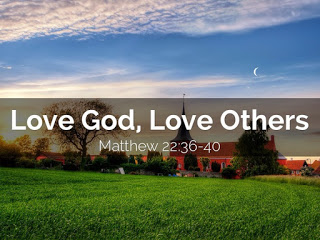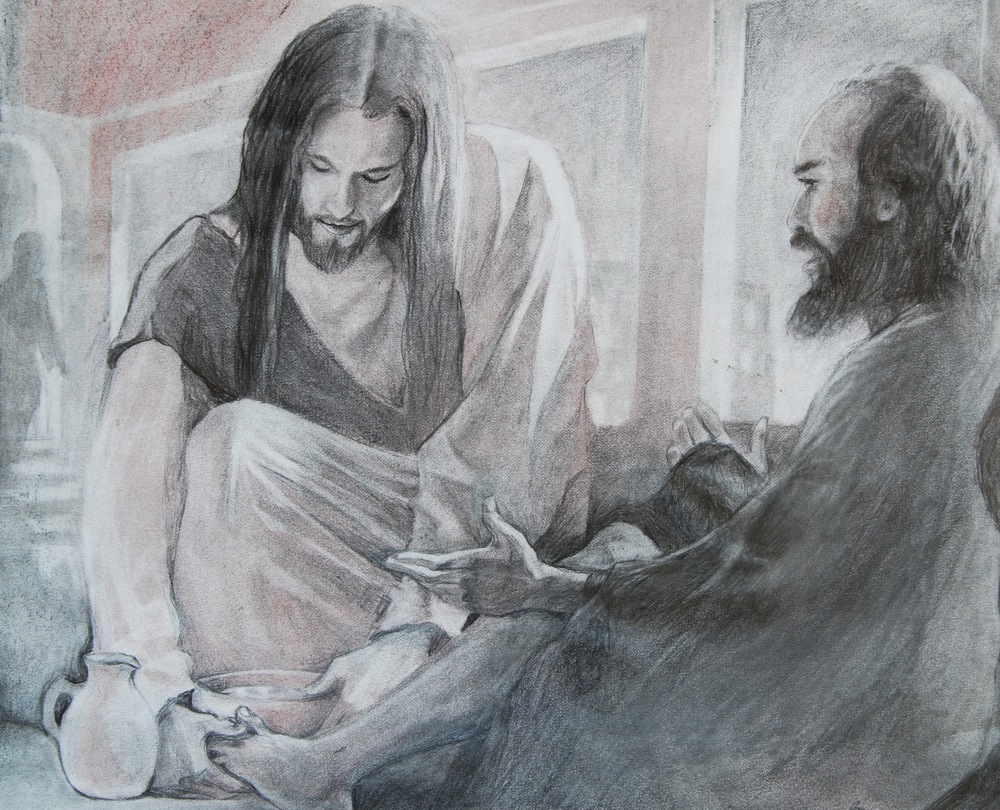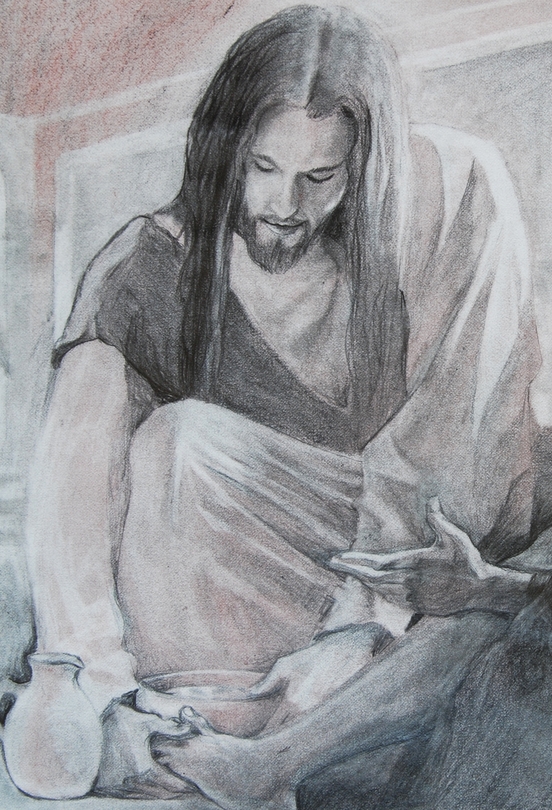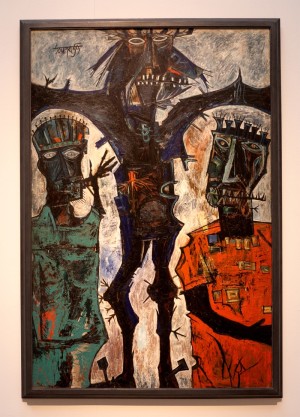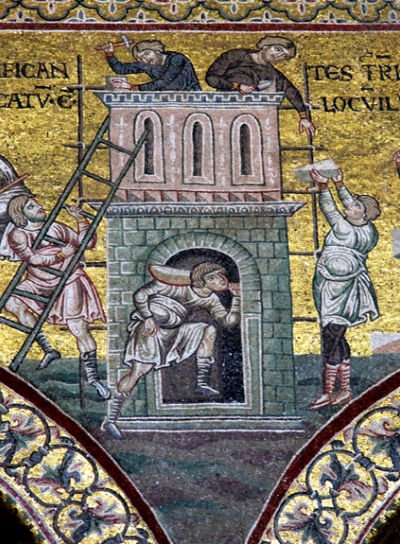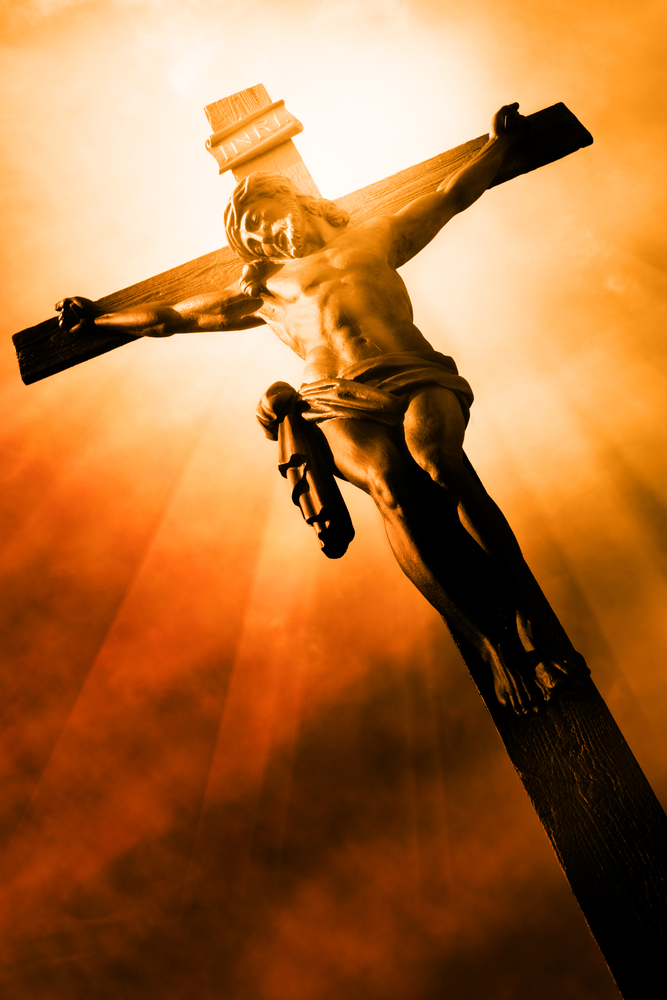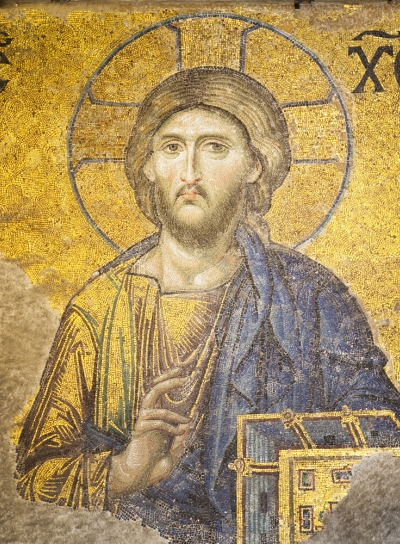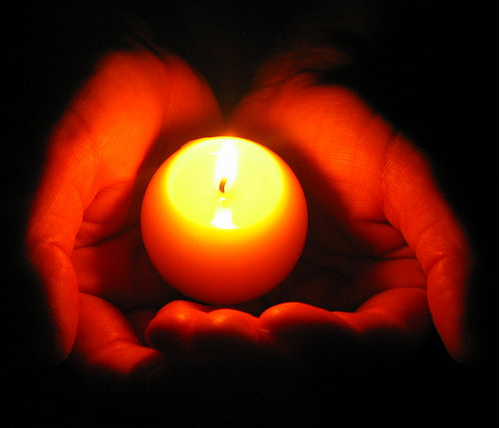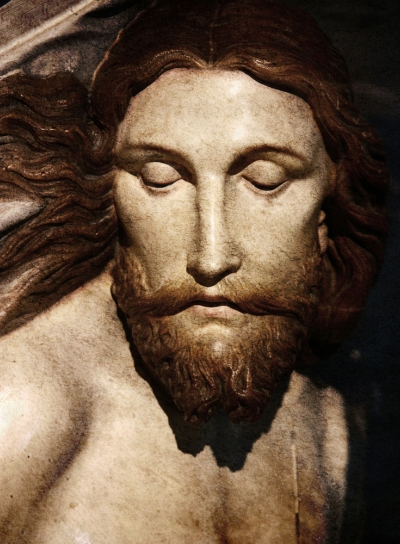Today we have large numbers of people who say they are spiritual but not religious. They are not interested in a ‘feel good religion that promises heaven.’ They want to be involved in making the world a better place and are tired of a religion that often comes across as bigoted and judgmental rather than accepting others in love and advocating justice for all.
Part 4 of the series, What Makes a Christian?
Sometimes our greatest breach with Scripture is not when we outright contradict it--it's what we choose to prioritize, diminish or outright ignore. There is a time for everything under heaven (Ecclesiastes 3:1). We need to put first things first and second things second. Much of Christianity focuses on salvation plans and doctrinal ideas.
Part 2 in Series: What Makes A Christian?
It is amazing how often we fail a most basic mark of the faith. It is a downright scandal how rarely it is preached. It's questionable how directly our religious and moral practices stem from it. Yet if we believe the direct words of Jesus Himself--you know, God--the very ability of others to recognize our Christian identity is dependent on how we follow this. We gather in churches. We have elaborate worship and praise. And yet we barely give lip service to the first and foremost of the commandments. When we do, it is often to give exceptions--No, Jesus didn't really mean that. . . I'm talking about the Greatest Commandment--love God and love neighbor. Abundantly.
In the wake of the murders of nine African Americans at Emanuel AME church in Charleston on June 17 by a self-proclaimed white supremacist, there was a burst of media interest in the scale and scope of white supremacist groups and networks within the U.S. What stands out in this recent media coverage, and in scholarship bearing upon both contemporary and historical trajectories of white supremacist movements, has been the tendency to view white supremacy—the idea that white people are inherently superior to people of color—as a relatively marginal or “extremist” dimension of American socio-religious culture.
Jesus called on people to change. Not just a little, but dramatically. The ‘kingdom of God’ is the term Jesus used to express his vision of a profound transformation of human beings and human institutions—social, political, economic and religious—to fully express the character and nature of God—a God of love. To accomplish this vision, Jesus worked toward the creation of a new kind of community dedicated to values of compassion, generosity, peace, and justice. He was creating a movement for change, a people engaged in a vast conspiracy of love.
The idea of a second coming of Christ is a mystery, if not explicitly controversial. Jesus’ followers apparently believed he would return during their lifetime after he was crucified. When that didn’t happen, later followers gradually changed the belief into an indefinite “someday.” After two thousand years of waiting, most Christians no longer look for it to happen in their lifetimes and acknowledge that Jesus may have been speaking metaphorically about his return. It is just as likely that those words were put into Jesus’ mouth by the gospel writers themselves. Wishful thinking?
The church sign can be easily read by anyone driving by: “You can’t be a devoted follower of Jesus unless you are part of a local church.” Does the church that posts this sign not trust the people with Jesus’s message? What is the meaning of “incarnation” if not “embodiment” by individual persons of the spirit of the Christ? Is the “Body of Christ” for members only? The Apostle Paul created the metaphor of the “Body of Christ” as the community of followers. In 1 Corinthians 10:16-17, he explains the meaning of the ritually-shared meal: “The cup of God’s gracious benefits that we consecrate means that we are involved in the blood of the Anointed, doesn’t it? The bread that we break means that we are involved in the body of the Anointed, doesn’t it? That there is one loaf means that we who are many constitute one body, because we all partake of the one loaf.” In Romans 12:5 he says, “Just as each of us has one body with many parts that do not all have the same function, so although there are many of us, we are the Anointed’s body, interrelated with one another.”
But what our guide told us next has stayed in my memory for the almost twenty years since my visit. With a shrug of his shoulders he explained, “Well, we need a site. An important event—we need to have a site. Do we know exactly where it happened? No. But we must have a site so that we can remember.”
A Commentary for the Annual Observance of Independence Day, 2013
“We hold these truths to be self-evident, that all men are created equal, that they are endowed by their Creator with certain unalienable Rights, that among these are Life, Liberty, and the pursuit of Happiness." These grand words are etched in the American consciousness, and serve as a preamble of sorts to the Constitution’s subsequent ideal goal of “a more perfect union.” With the recent split Supreme Court decisions over voting rights and marriage equality, along with and passage of an immigration reform bill in the Senate that naysayers declare is DOA in the House of Representatives, it would appear that while progress has been made, we clearly remain a work in progress, as well. As we prepare to celebrate our Independence Day holiday this year the fireworks have been set off a little early with the debate over the intelligence surveillance practices of the so-called Patriot Act by a government that was established of, by and for the people. Call them heroes or traitors, whistleblowers or hack-tivists, there are also a growing number of anti-authoritarian tech geeks who claim to be motivated less by notoriety than a certain principled conscience to which they claim to have pledged a higher allegiance. So, what is the nature of “natural” or “divinely-bestowed” rights? What of human conscience, earthly authority, and more? And – for those of us who might consider ourselves both a red-blooded American and Christian of one sort or other -- what might constitute a “Christian” conscience, based on a Jesus life-ethic? You can find the latest commentary Here.
If Jesus died for anything, he laid down his life like most social prophets and martyrs as a complete and utter refutation and relinquishment of any vestiges of earthly kingdoms. Whatever the subsequent followers of the donkey king would retrospectively make of him, he was regarded by the powers that be as nothing more than a nuisance. As more than one biblical scholar has pointed out, the real significance of Jesus’ crucifixion lay in the fact that anyone subsequently noticed and cared about the execution of a nobody. Yet it is the way of a nobody -- not a somebody -- that has so often altered the way of an otherwise weary world.
Giving Voice to Intolerance in an Age of Pluralism
The back story to the Tower of Babel myth is that the orignial plans called for anything but babble. But where once humankind may have all spoken the same language with one unifying plan to build a place all could dwell and abide one another, it has long since ever been the case. “We live in a pluri-verse, not a uni-verse,” says Raimon Panikkar. Ours is a pluralistic age in which we have many different and opposing – even sometimes mutually incompatible -- worldviews that threaten planetary human coexistence. In the midst of such chaos and confusion, how can we tolerate each other’s differences? Or, some might ask, should we even try? I consider myself a very tolerant person! The only people I cannot abide are ignorant and intolerant bigots! Does that make me intolerant as well, or merely principled? What would constitute a forbearance of principled intolerance, with a leniency of spirit? Here's John Bennison's latest Commentary from Words and Ways.
Jesus' Way of Confounding the Trophy-centric Ways of this World
The ancient Olympic games were a series of athletic competitions between city-states. The results determined who were the winners, and who were the losers. But during the games, any conflict between the warring states was forbidden. If ever there was a time when that Olympic torch should be lit and never be extinguished, perhaps this is it. But how? It seems international good sportsmanship inside the stadium can only be assured by heavy security on the outside; where unruly competing self-interests would seek to turn winning at all cost into a blood sport. The previous Words & Ways commentary explored a foolish kind of wisdom once espoused by a Galilean sage through his teaching, the parables he told, and even the seeming absurdity found in his miracles (see "The Foolishness of Jesus"). It is this same Jesus tradition that also proposes such counter-cultural notions that one can “win by losing," and “the last shall be first." Here's John Bennison's latest commentary from Words & Ways.
I've titled this as about the Resurrection, which is just one part of a complex of beliefs... but let's return and end there... What similarities or differences do you see in Paul's Resurrection statements and beliefs and those of the early Jerusalem Jesus-followers?
Wisdom & Foolishness in the Perennial Tradition
Wisdom is often mistaken as knowledge, prudence or pragmatism; whereas foolishness is equally regarded sometimes to be the kind of fool-hearted thing Jesus would have characteristically espoused with many of his confounding ideas about God, God’s ways and how we ought to treat one another. Truth be told, there are plenty of people who consider themselves much too smart to take seriously some of the darn fool things Jesus actually said and meant. But Jesus was no ordinary fool. A Words and Ways Commentary by John Bennison.
Basically, the Church was developing within a strongly partiarchal and heirarchical society.... Despite the freshness and hopefulness we see in Jesus and Paul, it is not surprising that male domination would soon assert itself and claim exclusive leadership privileges. Maybe women could lead among women, of course... no real complication or threat there.
What impudence of these two upstart fishermen to demand anything of God! These two brothers went to Jesus, not so much with a question or a petition or a prayer, but they went with a demand: "we want you to do for us whatever we ask."
Regarding Heaven and Hell; Ah, but a man's reach should exceed his grasp, or what's a heaven for? - Robert Browning. An evangelical pastor of a mega-church, Rob Bell, creates a stir when he writes a little book, suggesting when it comes to a place called heaven, there's room for everyone. What the hell?
Part I
Shortly before his deadly rampage in Norway in July, Anders Behring Breivik posted a rambling Christian jihadist manifesto on his Facebook page. Within days, a self-professed Christian fundamentalist who blogs online claimed the mass murderer was no Christian because he “supports Darwinism and human logic, demonstrating a rationalist worldview rather than a Christian one.” Uh-oh. While I would also identify myself as some kind of “Christian,” I couldn’t resemble either of these two characters less. So what kinds of beliefs and behaviors do I accept and refute to describe my own “Christian” identity? What kind of a “Christian” am I? …
Harold Camping says that the rapture described in 1 Thessalonias 4 will occur on May 21, 2011, and that God will destroy the entire Universe on October 21, 2011. Unlike John the Baptist and Jesus, Camping offers no chance for salvation.
The overwhelming probability is that the familiar details of the cross are not the result of historic memory at all, but are rather liturgical interpretations of who it was who died on the cross and what his death meant. A quick analysis of the details from this narrative reveals that they were drawn not from the memory of eye witnesses, but from the scriptures of the Jewish people, primarily from Psalm 22 and Isaiah 53. So even the central story of the final events in Jesus' life now looks more like the work of an interpretative imagination than it does the work of a historian.
Constituencies of two distinct religious traditions joined in and by their pasts have been engaged this week in observances honoring their shared mythology.
Sea Raven's inspired historical-critical reading of Jesus' thought welcomes us into the past and present struggle to bring about a divine commonwealth.


